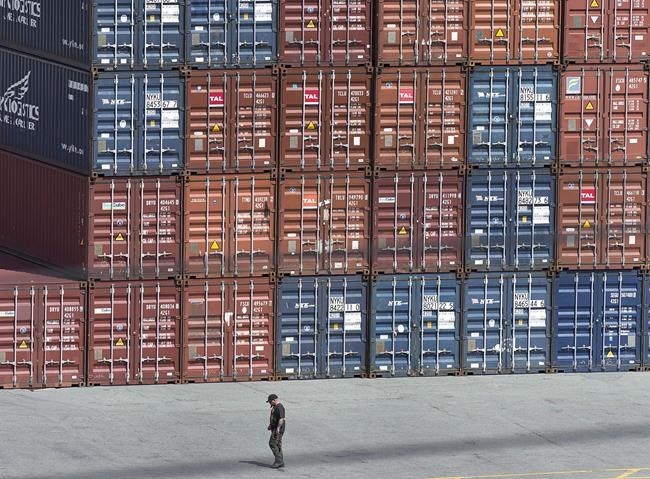OTTAWA — The Canadian economy appears to have rebounded in the third quarter after it stumbled and contracted during the preceding three-month stretch..
Statistics Canada's initial estimate suggests the economy grew at an annual rate of 1.9 per cent in the third quarter, the agency said Friday.
The finding could change once the agency receives additional data. The figure will be finalized next month.
While the result would be a welcome U-turn from the contraction of 1.1 per cent between April and June, the size of the rebound looks to be disappointing, said BMO chief economist Douglas Porter.
"The fact that the economy only managed to grow at roughly a two-per-cent annual rate after actually falling in the second quarter just shows how it's struggling to make any headway," Porter said.
"We had a really nice start to the year, but the economy, frankly, has had trouble building on that momentum."
It won't get any easier as economic headwinds from global supply chain issues are expected to worsen, dealing what Porter described as another in a series of unfortunate events keeping the economy from reaching its full potential.
After a contraction in July, real gross domestic product grew by 0.4 per cent in August, led by a rise in activity in high-contact service sectors helped by the easing of public health restrictions.
Output at restaurants and bars grew by 5.4 per cent, accommodation services rose 11.3 per cent, and air transport grew by 24.2 per cent to mark six straight months of double-digit growth as more travellers took to the skies.
The agriculture sector was a source of weakness as crop production fell 10.9 per because of record-setting heat and drought in the West.
Statistics Canada said the second straight month of declines in the sector marked the largest back-to-back monthly contractions since the agency began collecting comparable data in 1997.
To close out the quarter, the agency estimated GDP was essentially unchanged for September as a significant drop in manufacturing and decline in retail trade offset gains elsewhere.
Statistics Canada said total economic activity in August was about one per cent below pre-pandemic levels recorded in February 2020, a gap that didn't change in September.
TD Bank senior economist Sri Thanabalasingam said closing that remaining gap could be challenging because global supply-chain disruptions and labour shortages could crimp output for months to come.
The Bank of Canada, he wrote, "may need to, once again, adjust its narrative on the Canadian economy."
On Wednesday, the bank revised down its projection for growth in the third quarter to 5.5 per cent from an annualized rate of 7.3 per cent in its previous forecast, and lowered its forecast for growth in 2021 to 5.1 per cent from six per cent.
Even though growth has fallen below expectations, Porter said the central bank is likely still looking at raising rates sooner than planned because inflation is above its comfort zone.
Governor Tiff Macklem warned high inflation rates are likely to go higher as supply chain issues worsen in the coming weeks. He added the bottlenecks should eventually work themselves out.
CIBC chief economist Avery Shenfeld said Friday the impact from bottlenecks should lessen over 2022 if the source of problems, often COVID-19 outbreaks abroad, heals.
On Friday, Finance Minister Chrystia Freeland was in Rome to meet with her G20 counterparts where she planned to push countries to better share vaccines, which could reduce global outbreaks weighing on trade.
Freeland has previously said the government is keeping an eye on Canadian ports for signs of strain, but the Opposition Conservatives on Friday called on the government to do more to unclog supply chains and help grow the domestic economy.
"As global economies continue to emerge from the COVID-19 pandemic, it has never been more critical to have a plan to tackle the significant economic challenges on the horizon," Conservative Leader Erin O'Toole said in a statement.
O'Toole in a letter to Trudeau last week called on the government to work with the private sector and White House to shore up the North American supply chain given global challenges.
This report by The Canadian Press was first published Oct. 29, 2021.
Jordan Press, The Canadian Press



